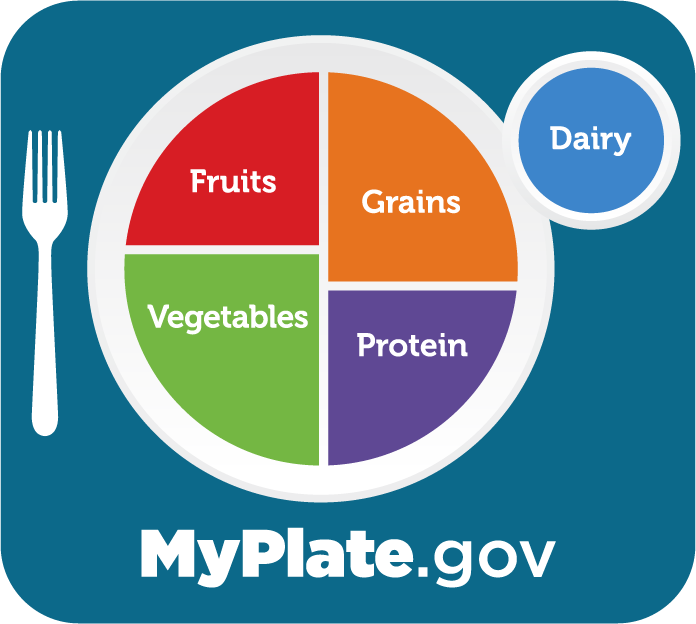As a parent, you’ve worked diligently to provide your children with healthy and natural alternatives to candy, chips, and most processed snacks such as fruit. But can kids eat too much fruit?
The short answer is yes.
Fruit is always a better snack or part of a meal because it is whole food, but children should balance fruit intake with all other food groups as well. Using MyPlate as a guide, fruit provides a variety of vitamins, antioxidants, and fiber as a part of a healthy diet.

Benefits of Eating Fruit
Fruits are rich in vitamins, minerals, antioxidants, and fiber. Eating a variety of fruits as part of a balanced diet has been linked to several health benefits, including:
- Improved digestion: Fiber in fruits promotes healthy digestion and bowel movements.
- Strong immune system: Vitamins and antioxidants in fruits can help protect the body against infections and illnesses.
- Healthy weight management: Fruits are low in calories and high in fiber, which can help children maintain a healthy weight.
- Improved brain function: Studies suggest that certain fruits, such as berries, may help improve cognitive function and memory in children.
Recommended Fruit Intake for Children
The American Academy of Pediatrics recommends that children aged 2 to 18 years should consume at least 1.5 to 2 cups of fruit per day. However, the amount of fruit a child needs varies depending on their age, gender, and level of physical activity. Here’s a breakdown of the recommended daily fruit intake for different age groups:
Age 2-3: 1 cup
Age 4-8: 1 to 1.5 cups
Girls age 9-18: 1.5 cups
Boys age 9-13: 1.5 cups
Boys age 14-18: 2 cups
Risks of Eating Too Much Fruit
While fruit is a healthy snack option, consuming excessive amounts can have unintended consequences. Here are some risks associated with consuming too much fruit:
- Bloating or Other Intestinal Distress: Fruits are high in the natural sugar fructose, which some people find hard to digest. This can cause gas or bloating.
- Sugar Cravings: Children are born preferring sweet tastes, thus their desire for breast milk. It is natural they might prefer fruit over vegetables. However, it is important that not all foods they are offered are sweet in order to help expand their acceptance of a wide variety of foods and flavors. With an increased variety of foods and flavors comes an increased variety of nutrients.
- Fiber: Fruits are a great source of fiber, which is an important part of kids’ diets – in reasonable amounts. Fiber helps kids feel full, and if they are eating too much they may miss out on nutrients from other food groups such as healthy fats and proteins.
Factors to Consider When Determining Fruit Intake
When determining how much fruit your child should consume, it’s essential to consider factors such as their age, size, activity level, and overall diet. For example, if your child is very active, they may need more fruit to meet their nutritional needs. Similarly, if your child is a picky eater, you may need to offer a wider variety of fruits to ensure they are getting all the necessary nutrients.
What About Emergen-C?
It’s common for parents to give their kids vitamin C supplements like Emergen-C when they start to get sick. However, while vitamin C might be helpful for adults, giving a child a large dose like what’s in Emergen-C isn’t a good idea. It won’t really prevent or cure a cold, and it’s not recommended for kids under 15.
Conclusion
In conclusion, fruits are an essential part of a healthy diet for children. However, too much of anything can have negative consequences. By following the recommended guidelines and considering factors such as age, size, and activity level, you can help your child maintain a healthy balance of nutrients.
Nutrition Resources
We know you want your child to be healthy and happy. That’s why our team of Registered Dietitians is here to help your family with anything you need in terms of healthy eating habits and supporting a healthy relationship with body and food. If you’re looking for resources outside of our RDs, please click on one of the links below:
Looking for a Pediatrician?
For over 60 years, families across Northern Colorado have trusted our compassionate team to care for children through every age and stage. From infancy to young adulthood, we’re here to support your family with expert guidance, personalized care, and a welcoming environment.

